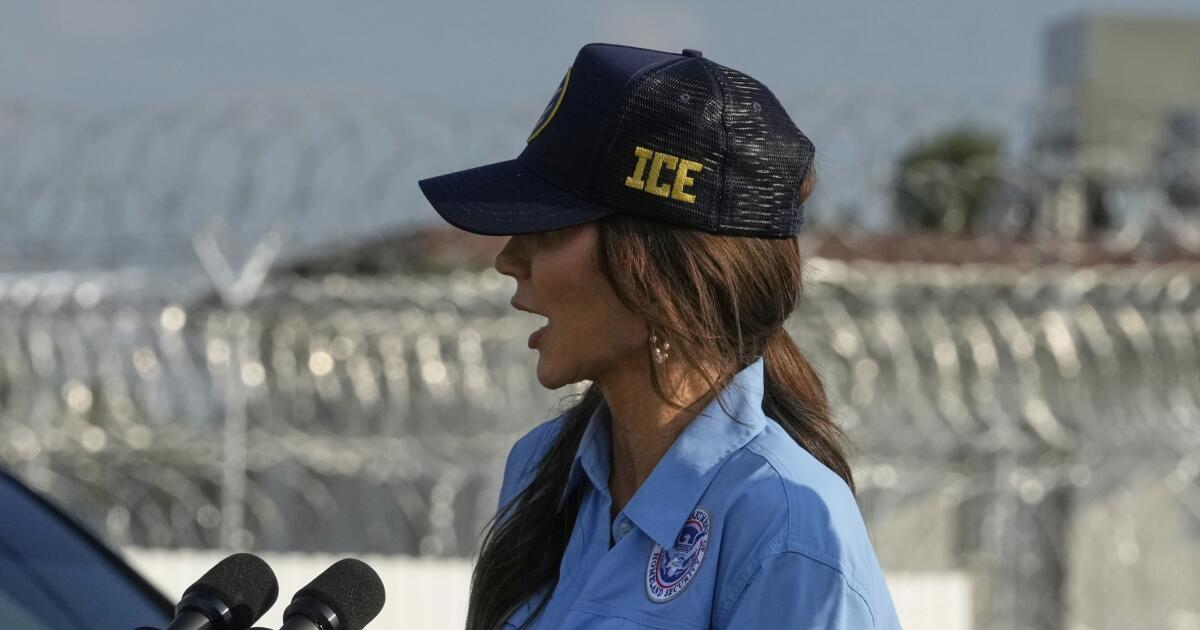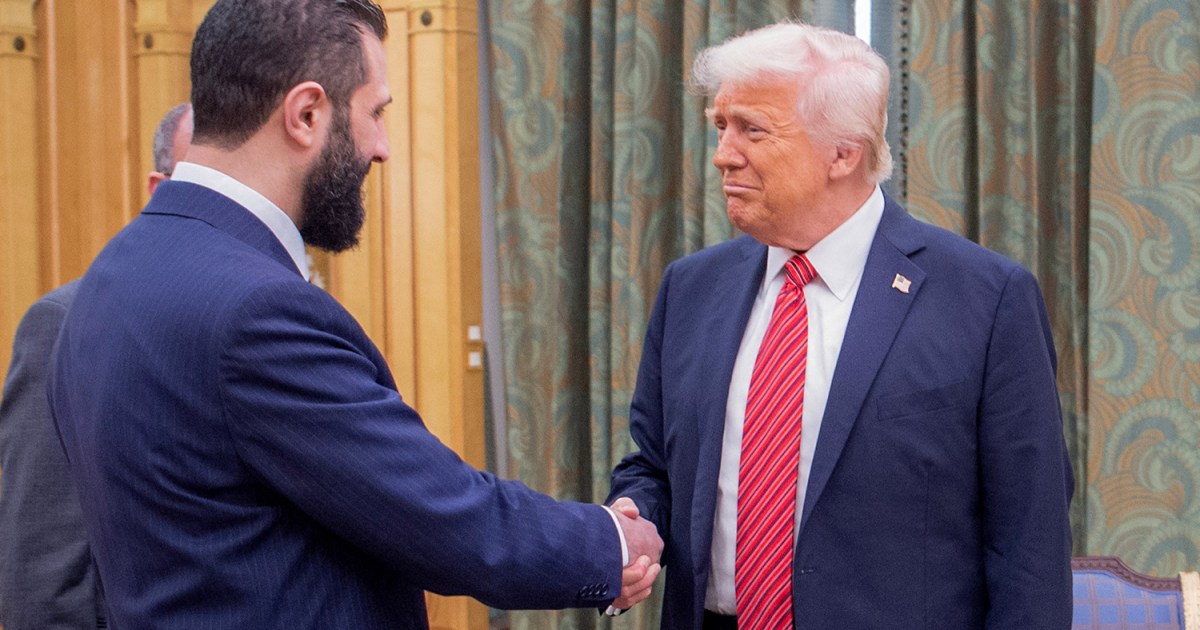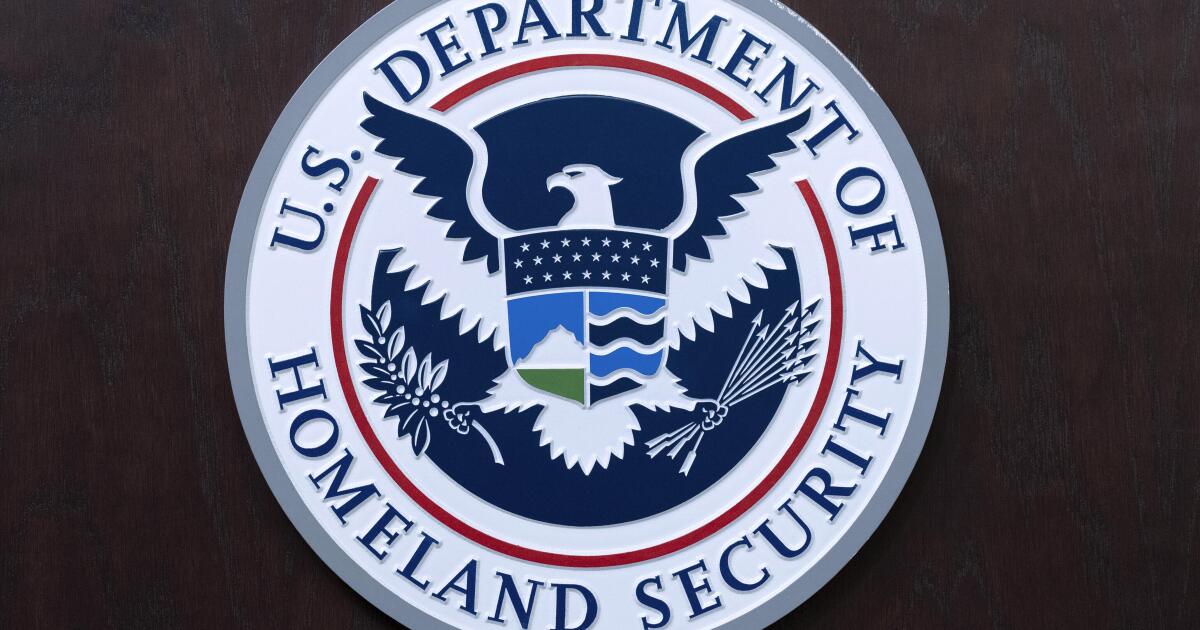Judge blocks Trump administration’s ending of legal protections for 1.1M Venezuelans and Haitians
SAN FRANCISCO — A federal judge on Friday blocked the Trump administration from ending temporary legal protections that have granted more than 1 million people from Haiti and Venezuela the right to live and work in the United States.
The ruling by U.S. District Judge Edward Chen of San Francisco for the plaintiffs means 600,000 Venezuelans whose temporary protections expired in April or whose protections were about to expire Sept. 10 have status to stay and work in the United States. It also keeps protections for about 500,000 Haitians.
Chen scolded Homeland Security Secretary Kristi Noem for revoking protections for Venezuelans and Haitians that the judge said would send them “back to conditions that are so dangerous that even the State Department advises against travel to their home countries.”
He said Noem’s actions were arbitrary and capricious, and she exceeded her authority in ending protections that were extended three times by the Biden administration.
Presidential administrations have executed the law for 35 years based on the best available information and in consultation with other agencies, “a process that involves careful study and analysis. Until now,” Chen wrote.
The Department of Homeland Security did not immediately respond to an email seeking comment.
Temporary Protected Status is a designation that can be granted by the Homeland Security secretary to people in the United States, if conditions in their homelands are deemed unsafe for return due to a natural disaster, political instability or other dangerous conditions.
Millions of Venezuelans have fled political unrest, mass unemployment and hunger. The country is mired in a prolonged crisis brought on by years of hyperinflation, political corruption, economic mismanagement and an ineffectual government.
Haiti was first designated for TPS in 2010 after a catastrophic magnitude 7.0 earthquake killed and wounded hundreds of thousands of people, and left more than 1 million homeless. Haitians face widespread hunger and gang violence.
Their designations were to expire in September but later extended until February, due to a separate court order out of New York.
Noem said that conditions in both Haiti and Venezuela had improved and that it was not in the national interest to allow migrants from the countries to stay on for what is a temporary program. Attorneys for the government have said the secretary’s clear and broad authority to make determinations related to the TPS program are not subject to judicial review.
Designations are granted for terms of six, twelve or 18 months, and extensions can be granted so long as conditions remain dire. The status prevents holders from being deported and allows them to work.
The secretary’s action in revoking TPS was not only unprecedented in the manner and speed in which it was taken but also violated the law, Chen wrote.
The case has had numerous legal twists, including an appeal to the U.S. Supreme Court. In March, Chen temporarily paused the administration’s plans to end TPS for people from Venezuela. An estimated 350,000 Venezuelans were set to lose protections the following month.
The U.S. Supreme Court in May reversed his order while the lawsuit played out. The justices provided no rationale, which is common in emergency appeals, and did not rule on the merits of the case.
Venezuelans with expired protections were fired from jobs, separated from children, detained by officers and even deported, lawyers for TPS holders said.
The Supreme Court’s reversal does not apply to Friday’s ruling. The government is expected to seek a stay of Chen’s order as it appeals.
Last week, a three-judge appeals panel also sided with plaintiffs, saying the Republican administration did not have the authority to vacate protection extensions granted by the previous administration.
Har writes for the Associated Press.





